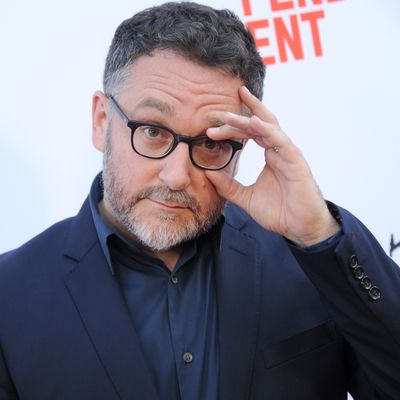
Considering how quickly Colin Trevorrow’s star has risen, it’s always a little bracing to remember that The Book of Henry, which comes out this week, is just his third film. His first was Safety Not Guaranteed, a movie that’s since become one of the more quietly influential releases of the last decade; his second, of course, was Jurassic World, the record-setting reboot of, well, you know. The Book of Henry marks his return to the style of his debut: Both films are quirky, character-focused indies that play with genre and narrative, and they’re both comically less expensive than Trevorrow’s studio efforts. Unfortunately, at least according to Vulture’s Emily Yoshida and many other critics, The Book of Henry has one little problem: It’s very, very bad.
The critical drubbing of Henry creates a fascinating situation. Trevorrow has already won the kingly honor of helming the forthcoming Star Wars: Episode IX. But because he’s made so few films, the reception of The Book of Henry has a different tenor than that of your average misfire by a big-budget filmmaker moonlighting in the indie world. This is a guy who’s already attracted a great deal of skepticism for his lack of experience, and for those people, Henry’s reception is only going to reinforce the idea that Trevorrow is the luckiest man in Hollywood, a director who made one pretty-good movie, then successfully managed the well-oiled Jurassic machine. But considering how many would-be franchises have crashed and burned recently, Trevorrow’s feat isn’t necessarily so small. That’s the question at the heart of a debate that’s followed The Book of Henry’s release, one that The Hollywood Reporter’s John DeFore raised in his review: Could Henry call into question Trevorrow’s role as the director of Episode IX?
The short answer is no; the long answer is also no, but with one caveat. Trevorrow is far from the first successful director to make an unsuccessful film, and if The Book of Henry’s box-office gross reflects the critical pile on, there’s a good chance that the people already in business with Trevorrow will write it off as a failed experiment and move on. While it might make other executives think twice before hiring him to do Fast 18, the international success of Jurassic World — worldwide, it’s the fourth-highest-grossing movie ever — provides a powerful counterargument to any criticism. And as the appointment of Simon Kinberg to direct the new X-Men reminds us, the guys who make it into the blockbuster club tend to hang around, provided they remain somewhat professional and don’t embarrass their collaborators in the press.
That brings us to the case of Josh Trank, who has to be mentioned in any conversation about a director being removed from a Star Wars movie. Trank, as you may remember, was supposed to direct one of the spinoffs, until the disastrous release of Fantastic Four and the myriad stories that came with it brought an end to his relationship with Lucasfilm. But Trank’s situation is drastically different than Trevorrow’s. No such tales of indiscretion exist around the latter, and the money that Fox lost on Fantastic Four will greatly outweigh any disappointment The Book of Henry could possibly find in the marketplace. For Trank, Fantastic Four was the main event, whereas for Trevorrow, The Book of Henry is basically a gap year.
Meanwhile, Frank Marshall, Trevorrow’s producer on Jurassic World, is the husband of Kathleen Kennedy, the head of Lucasfilm; just last year, both of them, along with Spielberg himself, heaped praise on Trevorrow during an interview with The Hollywood Reporter. And most of the Star Wars audience won’t ever even know that The Book of Henry existed, a fact that would’ve remained true even if it had turned out to be great. Most likely, the movie will come and go from theaters, and everyone will forget about it by the end of the summer. If worst comes to worst, Lucasfilm could bring in the kind of help that Gareth Edwards reportedly received with Rogue One, and that turned out just fine for everyone involved, Edwards included.
But here’s the caveat. Before Trevorrow’s ninth Star Wars film comes the eighth, December’s The Last Jedi, which is being written and directed by Rian Johnson. Johnson, a fan favorite thanks to indies like Brick and Looper, is one of the more exciting directors to get a crack at a movie of this size recently, and the fact that he’s both writing and directing it means that, if it’s a hit, he stands to become a nerd hero. As we’ve recently seen with the DC cinematic universe, vocal fans do have some sway with studios, and if The Last Jedi delivers, particularly considering the response to The Book of Henry, it isn’t hard to imagine a movement for him to have some involvement with Episode IX.
Even if that would be neither logistically possible nor something the powers that be would want, it would still create a tricky PR situation for Disney and Lucasfilm, which would hate to go into what should be one of the biggest movie events of all time with any notes of pessimism in the air. Could that touch Trevorrow? Again, it seems unlikely; Lucasfilm’s already replaced one more Star Wars director than they would’ve liked to. But with the amount of money at stake here, nothing’s out of the question.

